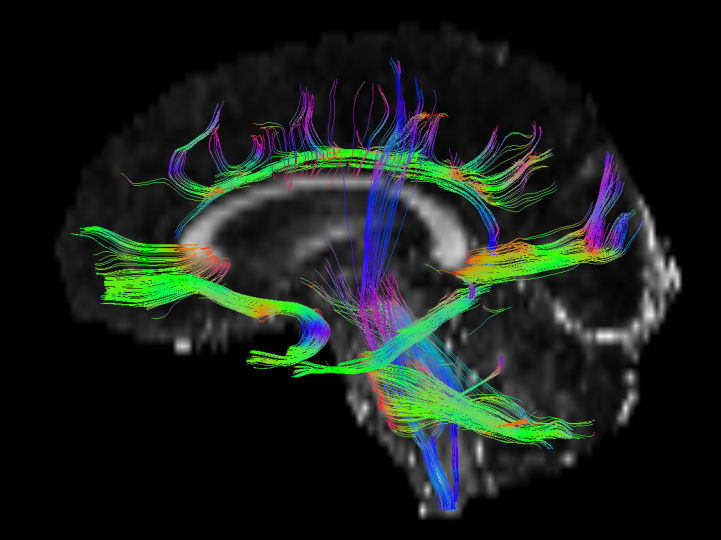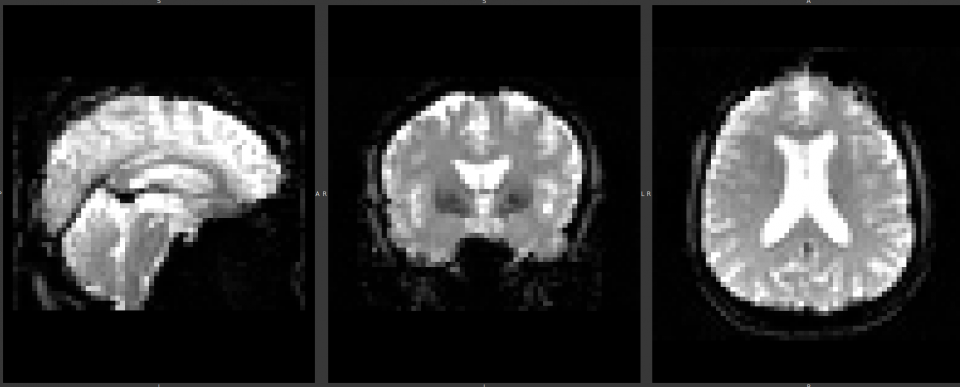Advanced MRI
Diffusion Tensor Imaging (DTI)
DTI is a non-invasive technique for characterising the microstructural organization of tissue in the brain. We have developed and deployed DTI analysis as part of our platform – to provide insight to the diffusion properties of regions of interest in clinical trials. Our suite of DTI analysis includes an analysis of functional anisotropy, mean diffusivity, axial diffusivity and radial diffusivity in a number of regions of interest.
We are also working closely with our academic partners to advance DTI acquisition and analysis by using multi-shell and multi-band sequences.

Arterial Spin Labelling (ASL)
ASL is a non-invasive technique which uses magnetically labelled arterial blood water as a imaging tracer. ASL methods are quantitative, making a useful method to measure Cerebral Blood Flow (CBF) which allows assessment of regional and global brain blood flow to monitor disease progression. We use an automated ASL analysis which is integrated into our platform, designed for harmonized ASL acquisition in multi-centre and longitudinal clinical trials.
Resting-State Functional MRI (fMRI)
fMRI is a non-invasive technique, measuring changes associated with blood flow and enables measurement of brain activity in both disease specific functional behaviour and resting state. fMRI provides comprehensive descriptions of functional connectivity between different grey matter regions. Although fMRI is relatively new to multisite clinical trials, we have in-depth experience in the harmonisation of fMRI sequences across scanner manufacturers in multi-centre international studies and in combination with extensive in-house quality control and analysis expertise.
fMRI endpoints for clinical trials in Alzheimer’s disease continue to be an area of active research and we work with our partners to select the most suitable fMRI endpoints for a study.
